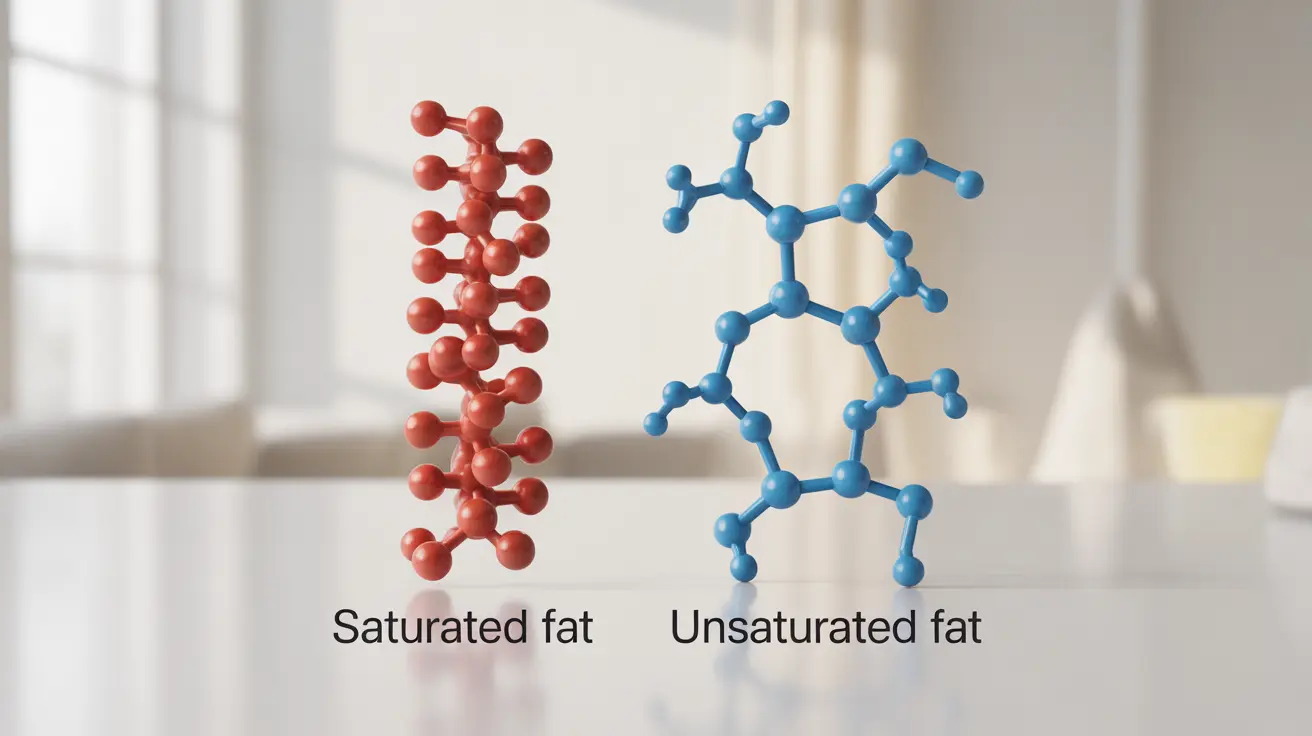Dietary fats play a crucial role in our health, but not all fats are created equal. Understanding the difference between saturated and unsaturated fats is essential for making informed dietary choices and maintaining optimal health. This comprehensive guide explores these two major categories of fats, their effects on the body, and how to make smart decisions about incorporating them into your diet.
The Chemical Structure of Saturated and Unsaturated Fats
The fundamental difference between saturated and unsaturated fats lies in their molecular structure. Saturated fats have all their carbon atoms "saturated" with hydrogen atoms, creating a straight, rigid structure. This structure makes them solid at room temperature. In contrast, unsaturated fats have at least one double bond between carbon atoms, creating a bend in their structure and keeping them liquid at room temperature.
Health Impacts of Different Fats
Effects on Cardiovascular Health
The type of fat you consume can significantly impact your heart health. Unsaturated fats, particularly those found in olive oil, nuts, and fatty fish, tend to support cardiovascular health by helping to reduce inflammation and maintain healthy cholesterol levels. Conversely, high intake of saturated fats, especially from processed foods and red meat, has been associated with increased LDL (bad) cholesterol levels.
Impact on Cholesterol Levels
Research shows that unsaturated fats can help improve your cholesterol profile by increasing HDL (good) cholesterol while lowering LDL cholesterol. Saturated fats, however, tend to raise both types of cholesterol, with a more pronounced effect on LDL levels.
Sources of Different Fats
Foods Rich in Saturated Fats
Common sources of saturated fats include:
- Red meat and fatty cuts of pork
- Full-fat dairy products
- Coconut oil and palm oil
- Processed snacks and baked goods
Foods Rich in Unsaturated Fats
Healthy sources of unsaturated fats include:
- Olive oil and avocado oil
- Nuts and seeds
- Fatty fish like salmon and mackerel
- Avocados
Making Healthy Fat Choices
While completely eliminating saturated fats isn't necessary or realistic, focusing on incorporating more unsaturated fats into your diet can improve your overall health. The American Heart Association recommends limiting saturated fat intake to no more than 5-6% of total daily calories while emphasizing foods rich in unsaturated fats.
The Nuanced View of Saturated Fats
Recent research suggests that not all saturated fats have the same health effects. For example, the saturated fats in dairy products may have different impacts on health compared to those found in processed meats. Medium-chain triglycerides (MCTs) found in coconut oil, while saturated, may have unique metabolic effects.
Frequently Asked Questions
Q: What are the main differences between saturated and unsaturated fats in terms of their chemical structure and physical properties?
A: Saturated fats have a straight molecular structure fully "saturated" with hydrogen atoms, making them solid at room temperature. Unsaturated fats contain double bonds between carbon atoms, creating a bent structure that keeps them liquid at room temperature.
Q: How do saturated and unsaturated fats affect heart health and cholesterol levels?
A: Unsaturated fats generally support heart health by reducing inflammation and improving cholesterol profiles. Saturated fats tend to raise LDL (bad) cholesterol levels and may increase cardiovascular risk when consumed in excess.
Q: Which foods are the best sources of saturated fats and which provide unsaturated fats?
A: Saturated fats are found primarily in animal products like red meat and full-fat dairy, while unsaturated fats are abundant in plant-based oils, nuts, seeds, and fatty fish.
Q: Why is it recommended to replace saturated fats with unsaturated fats in a healthy diet?
A: This recommendation is based on extensive research showing that unsaturated fats have more favorable effects on heart health, inflammation, and overall metabolic function compared to saturated fats.
Q: Can all saturated fats be considered equally harmful, or do some have different health effects?
A: Not all saturated fats have identical health effects. The source matters – for example, dairy-derived saturated fats may have different impacts than those from processed meats, and some, like MCTs from coconut oil, may have unique metabolic benefits.




